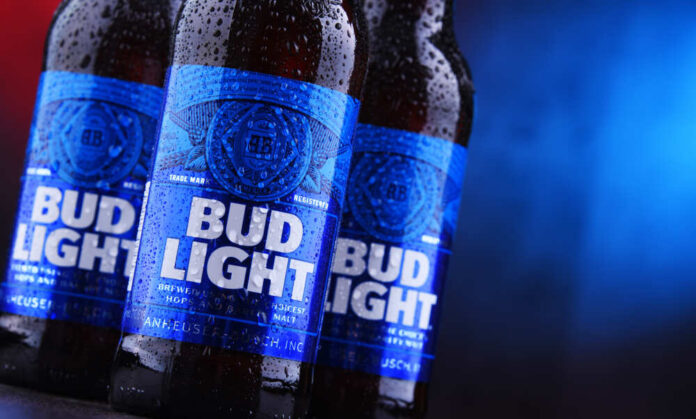
A recent Rasmussen Reports survey has found that most Americans support boycotting Bud Light due to its controversial transgender promotion. According to the telephone and online survey, 40% of American adults said the Anheuser-Busch promotion would make them less likely to buy Bud Light. In comparison, only 19% claimed it would make them more likely to purchase the beer.
The poll also uncovered that 54% of respondents either strongly or somewhat support the boycott, compared to only 30% who oppose it. The data further indicates a generation gap among the respondents, with 33% of those aged between 18 and 39 stating they were more likely to drink the beer due to the promotion. In contrast, only 6% of respondents aged 65 and older and 12% of those aged 40 to 64 felt similarly.
"Bud Flight"
Majority of Americans Support @AnheuserBusch Boycott over @dylanmulvaneyBy nearly a 3-to-1 margin, Americans say corporations pay TOO MUCH attention to transgender issues.
Even a plurality of 18-39's say "too much."
Subscribe and comment at YouTube:… pic.twitter.com/G9yIuT3gw8
— Rasmussen Reports (@Rasmussen_Poll) April 18, 2023
Interestingly, 52% of respondents felt that major corporations pay too much attention to transgender issues, while only 18% believed the opposite. This may partially explain the brewing backlash against Bud Light.
The beer giant recently experienced a significant drop in market value following its decision to partner with trans woman and biological male Dylan Mulvaney. David Johnson, CEO of Strategic Vision PR Group and expert in crisis communications, explained to Fox News Digital that Bud Light’s move “goes against its brand identity,” which is why the company has lost billions in market value.
While brands like Starbucks and Nike, which has partnered with Mulvaney for advertising its female sportswear, have not suffered similar boycotts, Johnson suggests that their consumer bases are more progressive. He notes that these brands can continue to push woke marketing schemes or make woke statements without significant repercussions.
Johnson emphasized that Bud Light’s core brand identity revolves around Midwestern, southeastern, southwestern, and rural purchasers, conservatives, and sports fans. Partnering with Mulvaney clashes with this identity, ultimately alienating the company’s target audience.
Bud Light’s Vice President of Marketing, Alissa Heinerscheid, aimed to make the company less “fratty” and more inclusive and diverse. However, Johnson believes this was a misstep, stating that Bud Light’s attempt to appeal to young, upper-class females is unlikely to succeed given that this demographic does not generally drink Bud Light.
In contrast, companies like Nike can withstand partnering with controversial figures like Mulvaney because their progressive stance aligns with their brand DNA. Johnson points to Nike’s partnership with Colin Kaepernick as another example of how the sportswear company can navigate controversies without significant backlash.
While some brands can weather the storm of pushing progressive agendas, Bud Light’s attempt has cost the brand significant market value and consumer support. The company’s struggle serves as a reminder that understanding and catering to a brand’s core audience is essential for success.














